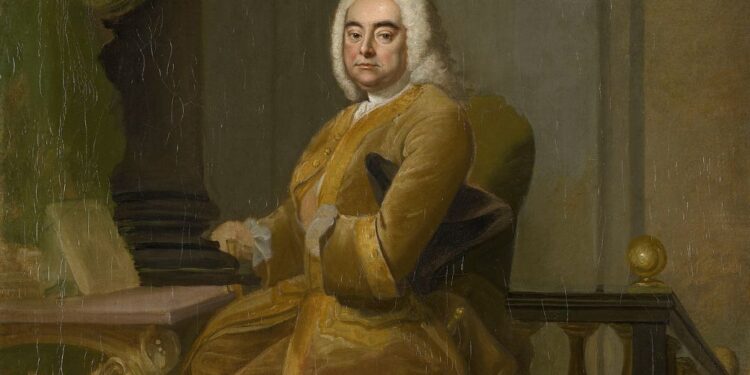On April 13, 1742, the city of Dublin witnessed a musical event of profound historical significance: the premiere of Messiah, the oratorio by George Frideric Handel. Presented at Neal’s Music Hall on Fishamble Street, this sacred masterpiece captivated its first audience with its powerful blend of scripture, melody, and emotion—a performance that would go on to become one of the most enduring works in Western music.
Handel, a German-born composer naturalized as a British citizen, had by then become one of Europe’s most celebrated musicians. Known for his grand operas and oratorios, he turned to the Messiah project in the summer of 1741, composing the entire score in an astonishing 24 days. The libretto, compiled by Charles Jennens, draws entirely from the King James Bible and the Book of Common Prayer, emphasizing the life, death, and resurrection of Jesus Christ.
The decision to premiere Messiah in Dublin, rather than London, reflected both practical and artistic motives. Handel had been invited to perform a series of charity concerts in the Irish capital, and the city’s vibrant musical culture and enthusiastic audiences offered the ideal setting for such a new and ambitious work. The premiere performance was a benefit concert supporting local charities, including the Society for Relieving Prisoners, Mercer’s Hospital, and the Charitable Infirmary.
To accommodate the expected crowd, organizers requested that ladies forego wearing hooped skirts and that gentlemen leave their swords at home—allowing over 700 people to fill the hall. The response was overwhelmingly positive. Dublin’s Journal described the event as a “universal admiration,” noting that Handel’s music “exceeded what we have ever heard.”
The oratorio’s most famous movement, the “Hallelujah” chorus, was reportedly so moving that King George II—during a later London performance—rose to his feet, a tradition that audiences have continued to this day. Yet, from its very first performance, Messiah resonated not just for its regal associations but for its accessibility, spiritual depth, and musical genius.
Today, nearly three centuries later, Messiah remains a cornerstone of the choral repertoire, performed annually around the world during the Christmas and Easter seasons. Its Dublin premiere marked the beginning of that extraordinary journey—a moment when Handel’s sublime fusion of word and music first lifted hearts and stirred souls.
newshub



Recent Comments